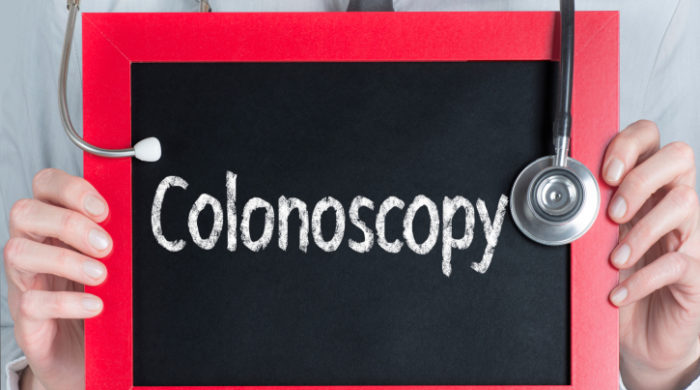If you’re like most of the population of the United States, you’ll do just about anything to avoid having a colonoscopy. Every time March rolls around, you duck your head when you drive past signs promoting colorectal cancer awareness, and stop your ears during your physical exams when your doctor firmly advises you that you are long past due for a screening.
We don’t want to join in with the rest of the world, giving you a finger-wagging admonishment to finally schedule your colorectal cancer screening by your gastroenterologist. Instead, we’d rather debunk the 5 most common reasons given for dodging a screening so that you run out of excuses!
5 Common Reasons for avoiding a colon cancer screening:
1. My insurance company won’t cover it.
This is one of the most frequently heard excuses from patients to their family doctors, and is nearly always untrue. When the Patient Protection and Affordable Care Act (PPACA) regarding preventative care was passed, insurance companies became required to provide appropriate preventative coverage for the insured. This includes a routine colonoscopy every set number of years, and should be payable in full by most insurance companies. Naturally, you must call your insurance carrier to confirm your coverage. For people of average risk with no documented risk factors, the first colonoscopy will typically be recommended at age 50 and every 10 years thereafter.
2. No one in my family has had colorectal cancer, so I’m in no danger.
In reality, of the 150,000 Americans that develop colorectal cancer each year, 85% of them have no family history of the disease. This is the third most common cancer related cause of death in the United States.
3. I have already had a colorectal cancer screening in the past, so I don’t need another one.
Colorectal polyps may take years to develop and become malignant. These polyps are directly related to age. As men and women continue to age, there is a significant increased chance of developing polyps. Just because you had a screening at age 50 does not ensure that your colon is still polyp-free ten years later. If your past screening colonoscopy found no polyps and if there is still no family history of precancerous polyps or colon cancer, you should have a screening colonoscopy once every 10 years or sooner depending your gastroenterologist’s recommendation. Poor bowel preparation quality and tortuous colon may require a screening colonoscopy sooner.
4. A colonoscopy is just too uncomfortable. I couldn’t handle that awful tasting stuff you have to drink to clear your colon or having to run to the bathroom all night.
Patients did indeed have to drink approximately 4 liters of salty tasting liquid designed to effectively clean out their colon. Now, however, there are many more options with smaller volumes. This results in a less uncomfortable voiding of the bowels.
Most patients are able to have their colonoscopy at an outpatient endoscopy center staffed by their community gastroenterologists. With the help of conscious sedation, discomfort is minimal during the colonoscopy. Patients are not required to have an overnight stay. Within a short span of time after the physician has completed the screening, most patients are right back to normal with little to no residual discomfort. If there is discomfort, it normally dissipates within a few hours. Because of the sedation, patients cannot drive until the next day.
5. It’s so uncommon for someone to have colorectal cancer, my chances of actually getting it are slim.
According to a research published in March 2014 by the American Cancer Society, in 2014 an estimated 71,830 men and 65,000 women will be diagnosed with colorectal cancer and 26,270 men and 24,040 women will die of the disease. This study also shows that the incidence of colorectal cancer among adults aged 50 years or more has fallen by 30% in the US over the last 10 years. This is thought to be primarily due to the widespread utilization of colonoscopy screening, which has almost tripled among adults aged 50 to 75 years (19% in 2000; 55% in 2010).
The truth is that almost all colorectal cancers begin as a very small polyp. When a patient has a colonoscopy, these small polyps are removed and never have the chance to develop into cancer. But, if you don’t ever get your colonoscopy, whatever small polyps are growing in your colon may turn into cancer. A polyp is easily treated. Cancer is not.
In addition, this myth also overlooks the reality that colorectal cancer is the most preventable cancer, and yet, it is still the third leading cause of cancer related death in the United States, killing an average of 50,000 Americans each year. Why is this so? It’s because people are not being screened. Almost all patients that develop colorectal cancer do so precisely because they did not heed the words of advice from their family doctor or gastroenterologists and get their routine screening.
You are at a higher risk of developing colon cancer if you have any of the following conditions: ulcerative colitis, Crohn’s disease, inflammatory bowel disease, , and familial cancer syndromes such as HNPCC or if you have a family history of colon cancer.
Think of this—nearly all of the 150,000 cases of colorectal cancer that are developed each year could have been prevented or detected in early stages if people had had their recommended screenings. If that doesn’t give a nudge in the right direction, we don’t know what will.
Call 425-259-3122 to schedule your screening!
